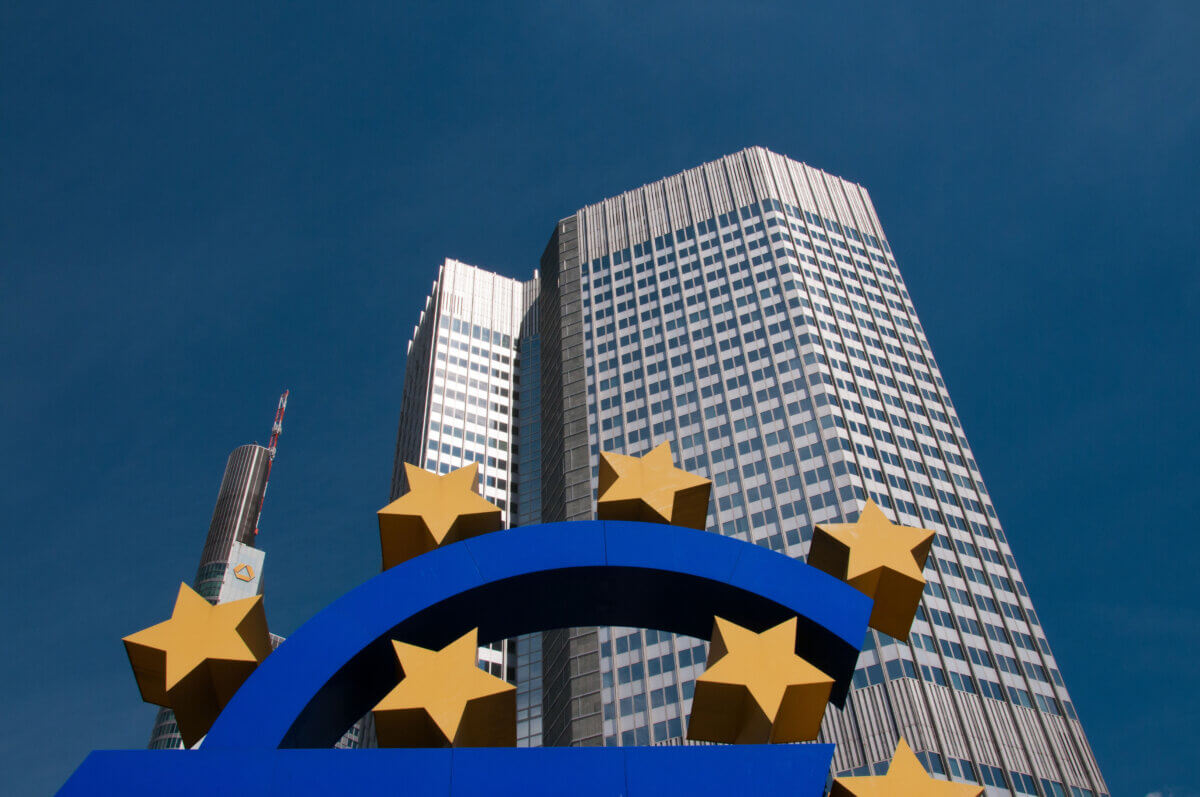The European Foreign Subsidies Regulation: An Overview

On 12 July 2023, the Foreign Subsidies Regulation (FSR) came into effect. The European regulation aims to protect the European internal market from unfair competition caused by subsidies from governments outside the EU to companies operating within the EU. The goal of the FSR is to create a level playing field for all companies active in the European internal market.
Background
Before the introduction of the FSR, the EU already had a state aid regime that regulates subsidies from EU member states to companies. This regime aims to prevent state aid from distorting competition within the internal market. However, there was no comparable regime for subsidies that companies received from governments outside the EU. Foreign subsidies thus remained outside the scope of the state aid regime, potentially creating unfair competitive advantages for companies receiving such subsidies.
The FSR is designed to fill this ‘gap’ by providing a framework for monitoring and regulating foreign subsidies. This ensures that all subsidies, regardless of their origin, are subject to the same regime to ensure a fair playing field.
Key Concepts
The FSR introduces a new review mechanism for subsidies provided by non-EU countries to companies active in the EU to prevent these subsidies from distorting the internal market. Key concepts of the FSR include:
- Foreign Subsidies: A foreign subsidy exists when the following three cumulative requirements are met:
- Financial Contribution: A financial contribution is provided (indirectly) by a third country. The concept of financial contribution is very broad and includes, among others:
- Direct Subsidies: Direct financial contributions such as monetary support.
- Indirect Subsidies: Benefits such as tax advantages, tax reductions, interest-free loans, and capital injections.
- Technology Transfer: Transfer of technology from outside the EU to a company within the EU, which can give the company a competitive advantage.
- Bank Guarantees: Unlimited state guarantees on loans that reduce financing costs for companies.
- Economic Benefit: The financial contribution provides an advantage to a company engaged in economic activity in the EU internal market.
- Selectivity: The financial contribution is provided only to one or more enterprises or sectors.
If these three requirements are met, it constitutes a foreign subsidy. Note that a foreign subsidy is not problematic per se. It must also be distortive to competition.
- Notification Requirement for Concentrations and Public Procurement: Companies must notify foreign subsidies to the European Commission if they are involved in mergers and acquisitions (concentrations) or public procurement above certain thresholds. This ensures transparency and allows the Commission to assess the impact of these subsidies before the concentration or the awarding of a public contract.
- Ex Officio Investigation: The European Commission can initiate investigations into foreign subsidies that may distort the internal market on its own initiative (ex officio), even if these subsidies have not been notified. This means that the Commission can independently start an investigation at any time without a notification from the involved companies.
- Corrective Measures: If the European Commission determines that a foreign subsidy distorts competition, it can impose corrective measures. These can range from recovering the subsidy, prohibiting a concentration or participation in a public procurement to imposing structural or behavioral remedies on the involved company.
Notification Requirement
Under the FSR, companies must notify concentrations to the European Commission or – in case of publc procurement – inform the contracting authority about received foreign subsidies if the following thresholds are met.
Mergers and Acquisitions
Companies must notify concentrations to the European Commission if the following thresholds are met:
- At least one of the merging parties, the target company in an acquisition, or the joint venture is established in the EU and achieved at least €500 million in turnover in the EU in the last financial year; and
- The parties involved have collectively received more than €50 million in foreign financial contributions in the three years preceding the transaction:
- In an acquisition: the buyer(s) and the target company;
- In a merger: the merging companies; and
- In the establishment of a joint venture: the joint venture partners and the joint venture.
The Commission can also require parties to notify a concentration that does not meet these thresholds if it suspects that the involved parties may have received foreign subsidies in the three years preceding the concentration.
Similar to competition law, the FSR includes a standstill obligation. This means that parties may only complete a notified concentration after receiving approval from the Commission. If parties do not comply with the standstill obligation or fail to notify (on time), the Commission can impose fines of up to 10% of the total annual turnover of the involved enterprise.
Public Procurement
For public procurement in the EU, bidders must notify the contracting authority if they receive foreign subsidies, provided the following thresholds are met:
- The value of the procurement is at least €250 million; and
- The bidder (including group and significant subcontractors and suppliers) has received at least €4 million in foreign subsidies in the past three years.
The contracting authority must forward this notification to the European Commission. The Commission will then assess it, and the award can only take place after the Commission has granted approval.
The Commission can also require bidders to make a prior notification if it suspects that the bidder may have received foreign subsidies in the three years before the bid or the request to participate in the procurement procedure.
Assessment
The European Commission assesses foreign subsidies based on their potential distortive effects on the internal market. Various factors are considered:
- Nature and Amount of the Foreign Subsidy: The Commission looks at the size and nature of the subsidy, including its conditions and purpose.
- Competitive Position: The impact of the subsidy on the competitive position of the recipient is assessed. This includes the extent to which the subsidy actually or potentially adversely affects competition in the internal market.
- Likelihood of Distortion: The FSR contains several assumptions about the likelihood of certain subsidies being distortive. For example, subsidies used for acquisitions or public procurement are considered highly likely to be distortive, and subsidies specifically aimed at rescuing distressed companies or supporting strategic sectors are seen as potentially distortive.
Subsidies of less than €4 million over three years are considered unlikely to be distortive, and subsidies that remain below the ‘de minimis’ threshold (for state aid) are considered non-distortive. This means that subsidies of less than €200,000 over a period of three years are not considered distortive.
- Balance of Effects: The Commission must weigh the negative effects of the subsidy against any positive effects, such as benefits to the recipient or broader economic benefits.
If the Commission concludes that a foreign subsidy distorts the internal market, it can prohibit the concentration or participation in the procurement. The Commission can also grant conditional approval, meaning that the concentration or award of the contract is only allowed under the stipulated conditions. Examples include repaying subsidies and divesting assets.
Ex Officio Investigation
The European Commission also has the authority to initiate ex officio investigations into foreign subsidies that may distort the European internal market. This means that the Commission can start an investigation on its own initiative without a notification from the involved companies. Companies are required to cooperate with these investigations and provide all necessary information. If companies do not cooperate or provide incorrect information, the Commission can impose fines. These fines can amount to up to 1% of the total annual turnover of the involved company.
As part of the investigation, the Commission can also conduct so-called dawn raids if it has a sufficiently concrete suspicion that foreign subsidies are distorting the European internal market. A dawn raid is an unannounced visit to the company to conduct an investigation.
Corrective Measures
If the European Commission concludes that a foreign subsidy distorts competition in the European internal market, it can impose various corrective measures. These measures can vary depending on the nature and severity of the distortion and include, among others:
- Repayment of Subsidy: The Commission can require the involved company to repay the received subsidy (partially) to neutralize the advantage.
- Structural Remedies: This can include requiring the company to divest certain assets or change its corporate structure to reduce the distortive effects of the subsidy.
- Behavioral Remedies: The Commission can impose behavioral measures, such as limiting certain business activities, requiring the company to offer access to infrastructure or technology to competitors, or imposing price restrictions.
- Exclusion from Future Procurement: Companies can be excluded from participating in future procurements within the EU as long as they benefit from foreign subsidies.
The Commission has considerable discretion in imposing corrective measures. However, this does not mean that the Commission can reverse already completed concentrations and awarded public contracts based on an ex officio investigation. The Commission can impose measures aimed at the future.
Finally – Implications for Practice
The introduction of the FSR has significant implications for companies active in the EU, especially those with ties to non-European countries. Key points of attention in this regard are:
- Compliance: Companies must be aware of their notification obligations and ensure that they provide timely and complete information about received foreign subsidies. This requires thorough internal monitoring and reporting.
- Considerations in Mergers and Acquisitions: In mergers and acquisitions, companies must consider the potential impact of foreign subsidies and the need to notify them. This can affect the timing and complexity of transactions.
- Considerations in Procurement Procedures: Companies participating in procurements must be aware of the notification thresholds and the potential impact of foreign subsidies on their bids. This can affect their competitive position and strategies.
- Risks of Investigations and Sanctions: Companies face the risk of investigations and potential sanctions if they receive foreign subsidies that could distort competition (in the eyes of the European Commission). This underscores the importance of proactive risk management strategies.
Given the geopolitical context, it is expected that the European Commission will prioritize the enforcement of the FSR. If you would like to know more about these developments, please feel free to contact us. Our team is already involved in matters related to the FSR and is happy to assist you.







